 THE RELEVANCE OF HISTORICALLY BLACK COLLEGES AND UNIVERSITIES
THE RELEVANCE OF HISTORICALLY BLACK COLLEGES AND UNIVERSITIES
African-Americans were slaves prior to the separation of what is now known as the United States from the Americas. After the United States of America was formed, the struggle for “true” freedom raged in this country until 1964. The argument can be made that African-Americans have only truly enjoyed the freedoms granted by the abolishment of slavery in 1865, and the rights granted African-Americans by the Civil Rights Act of 1964 for only 53 years, and even these freedoms are still the result of the day-to-day struggles faced by African-Americans. Today, there are those that would argue the relevancy of Historically Black Colleges and Universities. The very fact that the relevancy of Historically Black Colleges and Universities is called into question is insulting and begs that the question be asked; Is Princeton University relevant, Is Harvard or Yale? Are Florida State and Georgia relevant? These institutions are in fact “Historically” White Colleges and Universities as they have not always embraced the African-American. Why is there even the question of the relevancy of African-American Colleges and Universities? Is it because the majority of students that attend are African-American? These institutions offer the same curriculum as other colleges and universities. Has the work of Princeton, Harvard and Yale reached a level of completion that would beg us to ask the question; is there no more education to be had? Then why should one question whether or not the work of HBCU’s has reached it level of completion or necessity? Is the work of an institution of education ever completed? As long as there are minds to feed and as long as parents struggle to educate their children, there will always be a need for Historically Black Colleges and Universities.
Our Story
With the exception of the African-American, every individual, seeking freedom, that has set foot in America, has a story, a reason to have left their homeland to come to America. Most importantly, they had a choice to stay or leave their countries. With them they bring the history, the culture, the hopes and dreams for a better life to this melting pot that is America. Torn from our homeland, forced into the cruel institution that is slavery, separated from mothers, fathers, sisters, brothers, the African-American’s stories are of irreparable damage and the strong will of a people to survive and thrive in a country that did not invite them to the table. It is a story still being written and our Historically Black Colleges and Universities are a part of this journey to continue to grow strong, educated, and productive human beings. The HBCU is integral to the story of the African-American and to America.
The Institution
Knowledge is power. Cheyne University was founded in 1837 and is recognized as the first HBCU in the United States. Because the African-American was not allowed to matriculate at institutions of higher learning, employment opportunities were limited. Many of the first HBCU’s, which were established as land grant institutions focused on careers in agricultural, mechanical, and industrial subjects, but few offered college-level courses and degrees. Cheyne, like every other HBCU was founded to provide a place for African-Americans to obtain higher education, thus leveling the playing field in the workforce and enabling them to compete for employment opportunities that had not been available to them because they did not possess the required certifications or degrees. Over the next hundred years HBCU’s were founded throughout the south and other parts of the United States. These institutions graduated nurses, teachers, doctors, ministers and lawyers.
Hope and Pride
In addition to curriculum, HBCU’s offer to the African-American and any other individual seeking a higher education something that cannot be found on paper. Historically Black Colleges and Universities strive to feed the soul and many graduates can and do attest to this fact. Attending an HBCU, in many cases, is the factor that many graduates credit with their personal and professional success stories.
From the first day that a student steps onto the campus of a Historically Black College or University, that student is surrounded by those that will become his/her extended family. From the Professors, to their roommates, Deans, and the many other employees and staff they will encounter over the next four years, they will be impacted through their experiences, the organizations they join, the people that will uplift them and help them through this part of their journey.
An HBCU is not just a referral to tutoring when a student needs assistance. It is a foundation for learning that houses teachers and students committed to building self-esteem through mentorship, developing a study regimen that will not only assist that student with one course, but are the building blocks for the success of that student. It is the intertwining of hands to lift and hold on to one that might fall were it not for his brothers and sisters. The possibility of greatness is instilled in every student that attends an HBCU.
The sense of pride students feel when they learn of the rich heritage left to them by those that cared enough to fight every injustice so that an equal education could be obtained for every child that followed them cannot be rubber stamped “complete” because that pride is infinite, and will be felt from generation to generation. The HBCU experience is one of unity and those that attend are sisters and brothers, bound together for life.
Standing on the Shoulders of Greatness
Upon whose shoulders do you stand? An easy question to answer for those that attend HBCU’s. Dr. Martin Luther King, Patricia Harris, Supreme Court Justice Thurgood Marshall, Christa McAuliffe are just a few of the great men and women that are graduates of Historically Black Colleges and Universities. The pride in knowing as a student that you are walking in the footsteps, standing on the shoulders of men and women that changed the world is in itself a humbling, yet inspiring and exciting experience.
Today, there are approximately 228,000 students enrolled in HBCU’s. “Around 27,000 bachelor’s degrees were awarded to black HBCU students in 2015, making up 15% of all bachelor’s degrees earned by blacks in that year” according to a February 28, 2017 article that was published by the Pew Research Center . More than 50% of African-American public school teachers and 70% of African-American dentists are HBCU graduates.
Every HBCU was founded upon a common goal; to educate African-Americans so that they might not only better themselves, but also give back to their communities, thereby enriching them, and encouraging others to aspire to do the same.
Beyond the Dream
Where do we go from here? After marching, and dying for our freedoms, especially for the right to an education, we must collectively figure out how to move our youth steadfastly towards their legacy. Education is the cornerstone of that legacy. Our HBCU’s are valuable real estate, and it is imperative that we continually support them and be very vocal insuring their survival and generous in giving back both monetarily and through service.
Imagine if you can a world without a Lionel Ritchie or Earth Wind & Fire song. Imagine a world without Martin Luther King, or Nikki Giovanni or Jessie Jackson. Imagine a world without the light bulb, a Spike Lee movie or Dr. Patricia Bath’s breakthrough inventions to cure eye diseases. Each of these gifted individuals graduated from Historically Black Colleges or Universities.
We must continually look around us at the things that are happening in our communities as well as on a global scale, identify where we are as a people, and map out the steps we need to take to walk into a prosperous and moral future. Education is key and knowledge is power not just a statement. It is reality, realized by our ancestors as they struggled to learn to read knowing the repercussions if they were found out. Education is the doorway for any person that wants to succeed in this global social and this is why, more than ever, HBCU’s need your contributions.
Our work is not done and it will never be finished. Our ancestors laid the foundation, Martin Luther King and many others, have added on, and within the strong walls of our HBCU’s the work continues to nurture and grow strong young men and women. We are a family, bound together, by our struggles and our accomplishments. If we wish to realize our hopes and dreams, then we must show up, pick up the mantle of leadership and service, and play a part in ensuring the success of our Historically Black Colleges and Universities.
Desnee Young





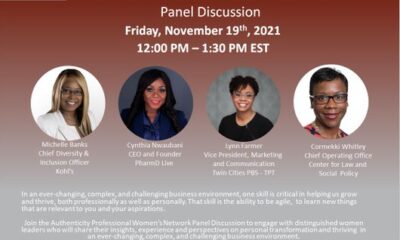
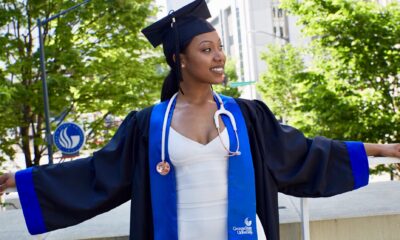
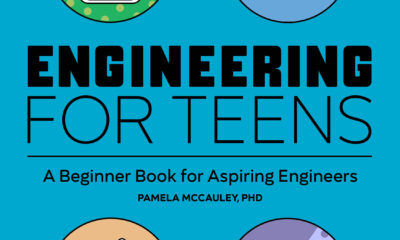
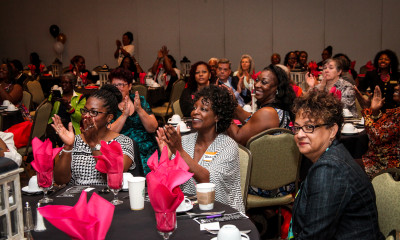









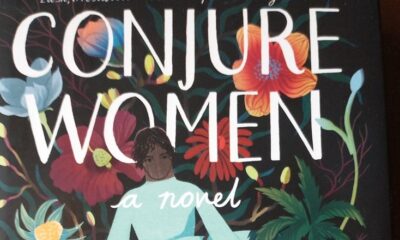
Facebook
RSS